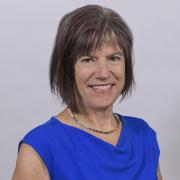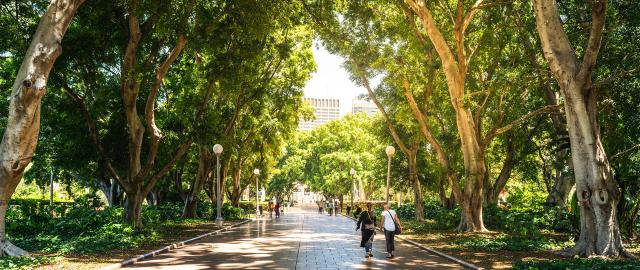Urban Forests: Solutions for a Changing Climate
About the Conference
The 10th annual Hixon Center Urban Conference is jointly convened by the Hixon Center for Urban Ecology, the USDA Forest Service, Connecticut Department of Energy and Environmental Protection and the Natural Areas Conservancy. This hybrid event will be on Zoom and at the Yale School of the Environment’s Kroon Hall, 195 Prospect St. New Haven, CT 06511.
There is mounting evidence that trees in cities hold an important role in ameliorating the impacts of climate change and addressing environmental injustices. Last year’s Intergovernmental Panel on Climate Change report concludes with confidence that extreme urban heat waves will occur more frequently in the future. The increasing frequency and intensity of extreme heat events is both a physical and mental health hazard. This is especially harmful for Environmental Justice communities, who often have unequal access to tree cover and the associated environmental benefits that trees provide. Urban forestry efforts can help address these challenges. The Biden Administration’s Inflation Reduction Act has created historic levels of funding to support the expansion of urban forestry practices and programs. This conference brings together researchers and practitioners to highlight the latest urban forestry research and innovative management examples to help meet this significant funding opportunity.
Speaker Information
An urban and land change scientist, Karen Seto is one of the world’s leading experts on contemporary urbanization and global change. She uses satellite remote sensing, field interviews, and modeling methods to understand how urbanization will affect the planet, including land change, food systems, biodiversity, and climate change. She has pioneered methods to reconstruct urban land use with satellite imagery and has developed novel methods to forecast urban expansion. She has conducted urbanization research in China for twenty years and in India for more than ten. Dr. Seto has served on numerous national and international scientific bodies. She was a coordinating lead author for the 2022 IPCC 6th Assessment Report and the 2014 IPCC 5th Assessment Report. For both reports she co-led the chapter on urban mitigation of climate change. She currently co-chairs the U.S. National Academies Climate Security Roundtable, established by the direction of Congress to help better understand and anticipate the ways climate change affects U.S. national security interests. She also co-chairs the U.S. National Academies Subcommittee on U.S.- China Scientific Engagement. From 2000 to 2008, she was faculty at Stanford, where she held joint appointments in the Woods Institute for the Environment and the School of Earth Sciences. She has received many awards for her scientific contributions, including the Outstanding Contributions to Remote Sensing Research Award from the American Association of Geographers.
Dr. Seto is an elected member of the U.S. National Academy of Sciences, the American Academy of Arts and Sciences, the Connecticut Academy of Science and Engineering, and a Fellow with the American Association for the Advancement of Science. She received a PhD in Geography from Boston University.
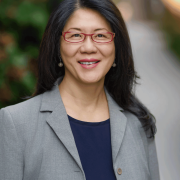
Speaker Information
Beattra Wilson, Assistant Director for Cooperative Forestry at USDA’s Forest Service in Washington, DC, is the national lead for the agency’s Urban and Community Forestry Program (UCF), the only program dedicated to urban forestry in the federal government. In her role, Ms. Wilson oversees UCF’s policy, budget, partnership development, and strategy for the equitable delivery of federal and state urban forestry programs across the country. Under her leadership, UCF’s budget has surged from $32 million to over $1.5 billion in FY 2023, thanks to a historic level of funding from the Inflation Reduction Act.
Over the years, Ms. Wilson has built a solid career administering conservation cooperative assistance programs at regional and national offices. She has served on boards and committees to advance environmental justice, conservation workforce diversity, and customer experience for the most disadvantaged communities. Ms. Wilson has also served as a White House detail to the Council on Environmental Quality and the Office of Management and Budget. In addition, she co-chaired the Secretary of Agriculture’s Executive Committee for 1890 Land Grant Historically Black Colleges and Universities. Ms. Wilson has a Bachelor’s Degree in Urban Forestry and a Master’s Degree in Public Administration.
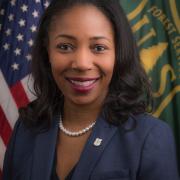
Mayors have proven crucial in addressing the climate crisis as they make bold decisions and enact effective change in their cities. Around the world, mayors are assuming leadership in implementing innovative urban forestry solutions that mitigate the effects of climate change and improve local conditions for residents. This panel features mayors and vice mayors who embody these transformative leadership qualities.
Speaker Information
Yvonne Aki-Sawyerr OBE was Mayor of Freetown from May 2018 to February 2023 and has recently been re-elected to serve for a second term. A finance professional with over 25 years of private sector experience in strategic planning, risk management consulting and project management, Mayor Aki-Sawyerr adopted an inclusive, data-driven approach to addressing challenges in the city. She championed the 4-year Transform Freetown plan which detailed 19 concrete targets across 11 sectors and covered issues ranging from tackling environmental degradation to facilitating the creation of jobs for youth. Annually published Transform Freetown reports that document progress made against targets can be found at https://fcc.gov.sl.
Aki-Sawyerr’s notable achievements include the construction and operation of Freetown’s first ever wastewater treatment plant, the digitalization and expansion of the city’s property rate system, the creation of over 3,500 jobs for youth and women, the planting and tracking of over 800,000 trees as part of the #FreetownTheTreeTown 1m trees target and securing the ongoing feasibility study for the introduction of a cable car system for the city.
Aki-Sawyerr’s public sector engagement began with her work during the 2014-2015 Ebola epidemic and her subsequent role as Delivery Team Lead for the second phase of a multi-stakeholder programme to drive socio-economic recovery in Sierra Leone post Ebola. Mayor Aki-Sawyerr was featured by Time Magazine in the Time100 Next 2021 List and by the BBC in the BBC 100 Women 2020 List. She is a Chartered Accountant with an MSc in Politics of the World Economy from the London School of Economics and a BSc Hons in Economics from Fourah Bay College. She is married with two children.
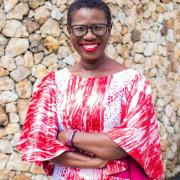
Speaker Information
Mayor Vallo was born in Bratislava and received his secondary education in Rome. He is a graduate of the Faculty of Architecture of the Slovak Technical University in Bratislava. As an architect, he gained foreign work experience, including in London. He holds a Fulbright scholarship at Columbia University in New York.
One of the main goals of Matúš Vallo and his team is to make Bratislava a strong and self-confident city with a high level of transparency as an important tool in the fight against corruption. Mayor Vallo places great emphasis, among other things, on high-quality public space, drawing on his own professional experience in this topic. Important topics for the mayor and his team are the fight against the climate crisis, the strengthening of accessible public transport, the social sector and assistance to disadvantaged groups.
In 2021, he received the World Mayor Future Award from The City Mayors Foundation for his efforts to transform Bratislava into a greener city with high-quality public space.
Mayor Vallo is a co-founder of the Pact of Free Cities, which he founded with the mayors of Warsaw, Prague and Budapest in 2019. In the same year, he received a scholarship from the Bloomberg Philanthropies educational program for mayors from cities around the world called the Bloomberg Harvard City Leadership Initiative.
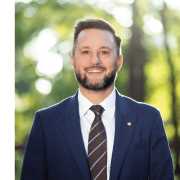
Speaker Information
Ioannis Anastasakis is a civil Engineer, graduated from the National Technical University of Athens (2004) and has a postgraduate degree in construction design from the same institution (2006). Since then, he is an active civil engineer with experience in private and public works. At the same time, he is a certified real estate appraiser by the Treasury Ministry with ten years’ experience in the field.
He served as consultant at the Ministry of Environment, Planning and Public Works, as Director of the Secretary General for Planning and Environment office (2007-2009), and also, as special adviser to the Regional Governor of Crete. Also, he had been member of the Board of Directors of the Heraklion Port Authority SA (2013-2015). He served as public servant for five years in the Technical Department of Anogia Municipality, where he was responsible for the elaboration and implementation of an Integrated Development Plan of this Historic Area (2009-2014).
Since 2014, he is an elected member of the Heraklion City Council. During this term he had served as Deputy Mayor of Urban Planning with simultaneous responsibility for the commercial activity of the Municipality. Until August 2019 he was Vice Mayor of Technical Works and European Programs. He was the coordinator of Heraklion’s Sustainable Urban Development Plan, which is considered one of the best in the country and he secured EUR 16,000,000 and provided a decade-long guide to the course of Heraklion towards 2030.
Today is a Vice Mayor of Technical Projects, Urban Green Space & Daily Affairs. During his tenure in these positions, new regulations for the commercial operation of the city, were introduced, while simultaneously was modernized the framework for licensing of stores and the administration and concession of its communal areas. At the same time were laid the foundations for the further development of city planning zones, for the upgrading of the Municipality’s Geographical Information System and for the effective handling of critical public security issues (management of dilapidated buildings, demarcation of streams, etc.).
During his present office were began reconstruction works in the center of the city, were started the new multi-use formation of the Venetian Walls, the traffic overturning of the data of the historic center, the establishment of free parking outside the “Walls” and the free city transportation (minibuses) .
He is a defender of positive thinking and cooperation and despite the innumerable difficulties, he remains optimistic and determined for the country’s re-establishment perspective.
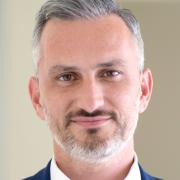
Speaker Information
Justin Elicker is the 51st elected Mayor of New Haven and is working hard with the team in City Hall so that every New Haven resident has the opportunity to thrive, no matter which neighborhood they’re from.Weeks into his first year on the job, Mayor Elicker was confronted with the greatest public health challenge of our lifetime—COVID-19—along with the many social and economic challenges the pandemic exposed. Mayor Elicker and his team worked to implement a science-based response to the pandemic while ensuring the City paid particular attention to the needs of historically marginalized populations.
Mayor Elicker and his team have also worked to implement vital changes to support New Haven’s most vulnerable. In partnership with local non-profit organizations, the City has permanently housed hundreds of individuals experiencing homelessness over the past year. In December 2022, Mayor Elicker launched the city’s first Office of Climate and Sustainability. The Office of Climate and Sustainability works with City departments, community organizations and New Haven residents to advance coordinated city-wide climate and environmental sustainability policies, practices and initiatives.
Justin attended public school, graduated with a BA from Middlebury College in Vermont, and earned both a Master’s in Business Administration from the Yale School of Management and a Master’s in Environmental Management from the Yale School of Environment. Justin served for four years on the New Haven Board of Alders. He worked in the U.S. Foreign Services, has been an elementary and high school teacher, served for three years as an adjunct professor of education policy at Southern Connecticut State University, and led a local non-profit.
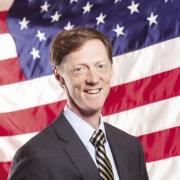
Speaker Information
Jessica Seddon is a Senior Fellow at the Yale Jackson School of Global Affairs. Her work on environmental governance focuses on how new sources of data can be leveraged to enable new (and more sustainable) ways of interacting with the environment around us. Her career in India and the U.S. spans academic, program leadership, and strategic advisory roles focused on institutional design for integrating science into policy and social initiatives.
Jessica is a co-founder of The Institutional Architecture Lab (TIAL) and Senior Fellow at Artha Global, a networked policy consulting organization that supports governments in the developing world to design, implement and institutionalize policy frameworks that promote prosperity, stability, and resilience. She is also an Adjunct Fellow with the Chair in U.S.-India Studies at the Center for Strategic and International Studies (CSIS) and serves on the academic council of the Indian School of Public Policy in New Delhi.
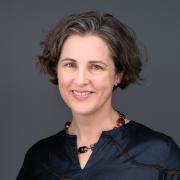
The focus on planting and managing street trees remains critically important to city residents, who derive direct benefit from the trees planted right outside of their homes. However, managing the natural forests of the city is essential, too, as natural areas account for about two-thirds of all tree cover in cities. Panelists in this session will include researchers exploring key threats to these urban forests and practitioners sharing their management strategies to care for tree canopy found in natural areas.
Speaker Information
Dr. Hallett (B.S. UW- Madison, M.S. and Ph.D. UNH) started his career in forestry on Prince of Wales Island in the Tongass National Forest, worked as a regeneration forester for Mead Paper on the Upper Peninsula of Michigan (logging in the winter), was woodlands manager for the University of New Hampshire while obtaining his master’s degree, finally obtaining a Ph.D. in Natural Resources in 1996.
He has spent his scientific career studying tree and forest health in the northeastern U.S. First conducting regional scale studies across the Allegheny, Green Mountain and White Mountain National forests. In 2010 he joined the NYC Urban Field station and began to study urban ecosystems. He brings lessons learned from studying rural forest management to urban ecology.
Currently he is working with a team to adapt silvicultural practices to urban forested natural areas in the northeastern U.S. He also works to establish a dialog between urban and rural forest management professionals
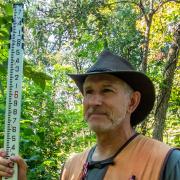
Speaker Information
Clara Pregitzer is the Deputy Director of Conservation Science at the Natural Areas Conservancy. In this capacity, she leads the organization’s research and conservation efforts in natural areas in NYC as well as other U.S. cities. She led the Forest Assessment component of the Natural Areas Conservancy Ecological Assessment for NYC parkland and the development of the Forest Management Framework. She previously worked with NYC Park’s Natural Resources Group, conducting ecological assessments in over 1500 acres of New York City Parks.
She holds a B.S. in Forestry from Northern Arizona University, a M.S. in Ecology and Evolutionary Biology from the University of Tennessee and a PhD from Yale School of the Environment.
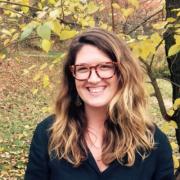
Speaker Information
Amy Witt is the Park Ecologist for Forest Park Forever, a private nonprofit conservancy that works with the City of St. Louis to restore, maintain and sustain the largest and most popular park in St Louis, Missouri. Amy has worked in a variety of urban and natural settings, and is passionate about providing equitable access to both natural resources and environmental education opportunities. She believes in the power of partnerships to strengthen environmental goals and outcomes for communities.
Amy holds a Bachelor of Science from Warren Wilson College, North Carolina and has completed GIS coursework from the University of Washington.
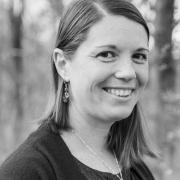
Speaker Information
Kelli oversees the Natural Resources Division at the City of Houson. In her role, Kelli implements conservation initiatives for the department to meet habitat management, restoration, research, land acquisition, and education goals. She is responsible for overseeing the Conservation Master Plan and conservation policy for the department, including Nature Preserve Ordinance, Natural Area Ordinance other departmental policies. Kelli’s habitat restoration experience includes managing projects in riparian forest, wetland, and coastal prairie habitats throughout urban and rural areas of Texas. She is the Departmental Resilience and Sustainability Officer HPARD and works to create and implement resilience projects throughout the park system.
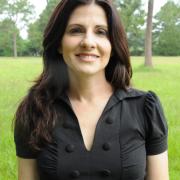
Speaker Information
Dr Mark Bradford is the Professor of Soils and Ecosystem Ecology at the Yale School of the Environment. Bradford’s work focuses on the health, biology, ecology and carbon storage potential of forest, grassland and agricultural soils. He is interested in developing knowledge that allows us to predict how environmental change and management will affect the rates of carbon stabilization and decomposition processes, and hence how the size of soil organic carbon stores change in space and time. Since starting at Yale in 2009, Dr. Bradford has increasingly focused on practice-relevant issues, including experimental assessment of urban afforestation techniques as part of NYC’s Million Trees Initiative.
Dr. Bradford holds a BSc and PhD in Biological Sciences from Exeter University in the UK.
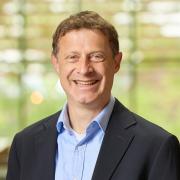
It is well understood that tree canopy cover provides cooling via shade and evapotranspiration. Panelists in this session present the implications of the Urban Heat Island effect. Researchers share their latest findings on health impacts, and land surface temperatures trends. Urban forestry practitioners share their management approaches to use tree cover to mitigate rising temperatures.
Speaker Information
Dr. Ariane Middel’s research interests lie in the interdisciplinary field of urban climate with focus on climate-sensitive urban form, design, landscapes, and infrastructure in the face of extreme heat and climatic uncertainty. For the past decade, Middel has advanced the field of urban climate science through applied and solutions-oriented research employing quantitative and qualitative field observations, local and microscale climate modeling, and geovisualization to investigate sustainability challenges related to heat, thermal exposure, water use, energy use, and human-climate interactions in cities.
Middel directs the SHaDE Lab at Arizona State University (ASU) and is an active member of the Urban Climate Research Center (UCRC) and the Central Arizona–Phoenix Long-Term Ecological Research (CAP LTER) program. She is the President of the International Association of Urban Climate (IAUC), the premier international organization for researchers engaged in all aspects of urban climate scholarship.
Middel is an Associate Professor in the School of Arts, Media and Engineering at ASU and has a joint appointment with the School of Computing and Augmented Intelligence. She holds a BS and MSc in Engineering from the University of Bonn, Germany and a PhD in Computer Science from the University of Kaiserslautern, Germany.
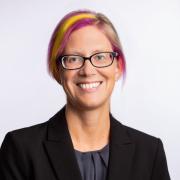
Speaker Information
Dr. Matthew Browning (MESc, 2012), Founding Director of the Virtual Reality & Nature Lab and Associate Professor in the Department of Parks, Recreation and Tourism Management at Clemson University, is a globally recognized scholar investigating the impact of nature on human health. His research aims to optimize nature-based solutions, measure nature exposure, and promote sustainability and nature-human interactions through technology. He has authored over 100 peer-reviewed publications and is ranked among the most productive and cited researchers in the fields of parks, recreation, and health based on recent PubMed metrics. He also acts as the Scientific Advisor for NatureQuant, developer of the personalized nature prescription app, NatureDoseTM. Examples of his recent work include the role of virtual reality in hospice care and disaster readiness; the environmental determinants of fatal police shootings, suicides, healthcare expenditures, and other pressing issues; and the categorization of natural landscapes that promote health. He increasingly focuses on engaging vulnerable populations in scalable urban greening initiatives for heat reduction and climate resilience.
Dr. Browning has a BA in Biology from Oberlin College, a MESc from Yale School of Forestry and Environmental Studies and a PhD in Forest Resources and Environmental Conservation from Virgina Tech.
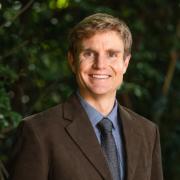
Speaker Information
Sharon Danks, MLA-MCP, is an environmental city planner, social entrepreneur, and author who has worked to build and shape the green schoolyard field for more than 20 years. She founded Green Schoolyards America in 2013 and leads the organization as its Chief Executive Officer. Over the last two decades, her career has focused on transforming school grounds into vibrant, nature-rich public spaces that engage the community and nurture children as they learn and play. Her work is grounded in ecological design, green infrastructure, and environmental policy and is driven by a sense of urgency to improve equitable access to green space and protect children from the increasing effects of climate change.
To create a paradigm shift in the way school grounds are designed, used, and managed, she convenes and leads large-scale collective impact initiatives that provide opportunities for organizations and institutions to collaborate. These efforts include co-founding and leading the International School Grounds Alliance, the National COVID-19 Outdoor Learning Initiative, and the California Schoolyard Forest System℠.
An accomplished schoolyard designer, researcher, and public speaker, Sharon has traveled the world to study hundreds of school grounds and share best practices. She is author of the award winning book Asphalt to Ecosystems: Design Ideas for Schoolyard Transformation (New Village Press, 2010), and became an Ashoka Fellow in 2017. Prior to Green Schoolyards America, she was a co-founding Principal of Bay Tree Design.
She holds master’s degrees in landscape architecture and city planning from UC Berkeley, a Professional Certificate in Natural Resource Management from UC San Diego Extension, and a bachelor’s degree from Princeton University. She is the mother of two expert playground testers who are now off on adventures of their own.
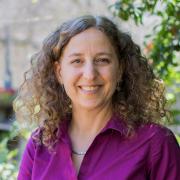
Speaker Information
Brian Knox is a skilled and dedicated Senior Urban Forester, serving the City of Tampa with his expertise in managing urban forestry. With over 10 years of experience in the field, Brian’s knowledge and passion for trees have made him an invaluable asset to the city by enhancing the urban environment through sustainable tree management practices.
Holding a master’s degree in Urban Forestry from Southern University, Brian’s educational background has helped navigate various disciplines of Urban Forestry. Equipped with this advanced degree, Brian provides insights into the complexities of urban ecosystems and the critical role trees play in improving air quality, reducing urban heat island effects, and promoting overall environmental well-being by representing City of Tampa in various capacities.
As the implementer of Tampa’s Urban Forest Management Plan, Brian has taken an adaptive management approach to help the city’s green spaces thrive. His efforts include conducting a five-year ecological analysis of Tampa’s urban forest, identifying areas for improvement and formulating strategies to enhance the health and sustainability of the tree canopy. Through his dedication, Brian works to create a greener, more resilient urban landscape for the residents of Tampa to enjoy for generations to come.
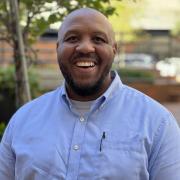
Speaker Information
Jordana Vasquez is the Senior Manager for Climate Resilience & Equity at the Resilient Cities Network. She currently leads the Resilience for Communities (R4C) Program in the North America region. As part of her role, Jordana works closely with in-network city staff, local community organizations, and other stakeholders to identify and scale community-centric resilience solutions. She uses community engagement tools and project implementation resources to develop actionable plans that effectively address climate risks and socioeconomic inequities. Prior to her work at Resilient Cities Network, Jordana served as a Senior Associate with an NYC non-profit, Building Energy Exchange (BE-Ex), tackling climate issues linked to the built-environment in support of the City and the State’s ambitious climate action plans. Before BE-Ex, Jordana worked as a community development officer, providing technical assistance and development aid for Hurricane Sandy’s multifamily recovery and resiliency efforts.
She launched and co-founded WOC/CS- the only global digital collective and community that is 100% dedicated to advancing women of color working across the sustainability industry. Since its launch in 2019, the community has brought together over 5,000 women of color through virtual and in-person events, social media channels, a digital community, and online publication.
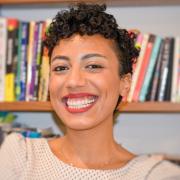
Federal and state government leaders drive government policies and allocation of resources that will shape urban forestry management opportunities across the United States. The network of state urban foresters supported by the USDA Forest Service are essential agents who understand the capacity needs and challenges faced by different regions, as well as emerging innovations.
Speaker Information
Danica Doroski has been Connecticut’s State Urban Forester since 2021. A forest ecologist by training, Danica also brings experience in horticulture, community engagement, and education from her time at the Morris Arboretum in Philadelphia, PA, the New York Restoration Project and the New York City Department of Parks and Recreation. Throughout these various roles, her favorite part of urban forestry continues to be getting to learn from local land managers and community groups about the urban forests in their neighborhoods. Danica holds a BA from Bates College and both an MFS and PhD from the Yale School of the Environment.
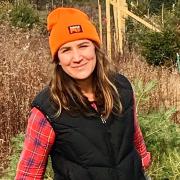
Speaker Information
Ben Thompson was born and raised in New Haven County, Connecticut, where his childhood experiences with trees and forests would later inspire an interest in arboriculture and a desire to pursue a career in urban forestry. He holds a B.S. in Environmental Science from Unity College in Maine, and an M.S. degree in Forest Resources and Conservation from the University of Florida. Ben has previously worked as a city forester in the Washington DC metro area and currently serves as the Urban & Community Forestry Program Manager for the Washington State Department of Natural Resources. He lives in Washington State’s Capitol—the quirky city of Olympia, Washington with his wife of ten years and two children, ages 6 and 9.

Speaker Information
Kalaia secured a position with the Pennsylvania Department of Conservation and Natural Resources as the first Tree Equity Specialist in the country in 2021. For the last two years, she has put her educational background and emotional intelligence to use and has worked tirelessly to build trust and a culture of collaboration between the state’s rural and community forestry program, local, and statewide partners and environmentally disadvantaged communities throughout Pennsylvania to ensure all people have equal access to healthy trees in their communities.
Kalaia earned a Bachelor of Science degree in Urban Forestry from Southern University and A&M College. She then attended Pennsylvania State University and received a dual Master of Science degree in Forest Resources and Human Dimensions in Natural Resources in the Environment.
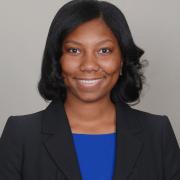
Speaker Information
Danielle Gift is a Regional Urban & Community Forestry Program Coordinator for the USDA Forest Service. She focuses on providing support to NY and the 6 New England states and in assisting communities in planning urban forestry programs to maximize social, environmental, and economic benefits. Prior to her role with the Forest Service, she was the NYC Area Manager for Davey Resource Group, leading their environmental consulting operations in the NYC metro area, and served in several roles in the Central Forestry division of the NYC Parks Department, where she started her career.
Danielle earned a B.S. in Forestry from Northern Arizona University and her M.S. in Forestry and Forest Products, with an interest area in Urban Forestry, from Virginia Tech. In her spare time, she enjoys cooking, hiking, traveling, and stalking the many turkeys in her backyard (think Rear Window but with 20 wild turkeys). She’s a recent transplant to New England, and although she misses her former neighborhood in Queens, she does not miss the sounds and smells!
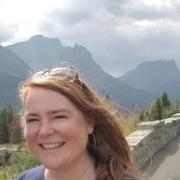
Speaker Information
Professor Nancy B. Grimm is an ecosystem ecologist who studies the interactions of climate change, human activities, resilience, and biogeochemical processes in urban and stream ecosystems. Grimm was founding director of the Central Arizona–Phoenix LTER, co-directed the Urban Resilience to Extremes Sustainability Research Network, and now co-directs the NATURA and ESSA networks, all focused on solving problems of the Anthropocene, especially in cities.
With collaborators and students, her research centers on nature-based, technological, and governance solutions that can build resilience to a future with increased frequency and magnitude of extreme events. In streams, Grimm studies how hydrologic and climatic variability influence ecosystem processes such as stream metabolism and nutrient dynamics, and more recently, the impacts of a novel desert disturbance (wildfire) on stream processes through hydrologic connectivity of upland to stream-riparian corridor.
Grimm was President of the Ecological Society of America and is a Fellow of the American Association for the Advancement of Science, the American Geophysical Union, the Ecological Society of America, the Society for Freshwater Science. She is a member of the National Academy of Sciences and has made >220 contributions to the scientific literature with colleagues and students.
